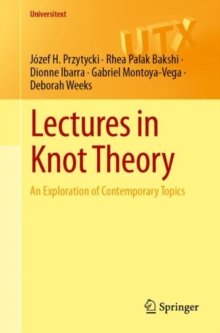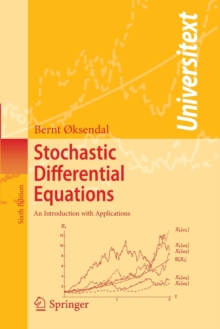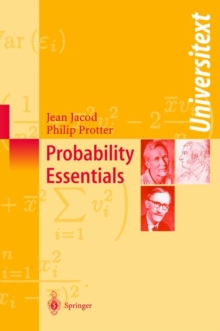
Stochastic Differential Equations : An Introduction with Applications PDF
by Bernt Oksendal
Part of the Universitext series
Description
These notes are based on a postgraduate course I gave on stochastic differential equations at Edinburgh University in the spring 1982.
No previous knowledge about the subject was assumed, but the presen- tation is based on some background in measure theory.
There are several reasons why one should learn more about stochastic differential equations: They have a wide range of applica- tions outside mathematics, there are many fruitful connections to other mathematical disciplines and the subject has a rapidly develop- ing life of its own as a fascinating research field with many interesting unanswered questions.
Unfortunately most of the literature about stochastic differential equations seems to place so much emphasis on rigor and complete- ness that is scares many nonexperts away.
These notes are an attempt to approach the subject from the nonexpert point of view: Not knowing anything (except rumours, maybe) about a subject to start with, what would I like to know first of all?
My answer would be: 1) In what situations does the subject arise? 2) What are its essential features? 3) What are the applications and the connections to other fields?
I would not be so interested in the proof of the most general case, but rather in an easier proof of a special case, which may give just as much of the basic idea in the argument. And I would be willing to believe some basic results without proof (at first stage, anyway) in order to have time for some more basic applications.
Information
-
Download - Immediately Available
- Format:PDF
- Publisher:Springer Berlin Heidelberg
- Publication Date:09/03/2013
- Category:
- ISBN:9783662130506
Other Formats
- Paperback / softback from £40.55
- PDF from £42.49
Information
-
Download - Immediately Available
- Format:PDF
- Publisher:Springer Berlin Heidelberg
- Publication Date:09/03/2013
- Category:
- ISBN:9783662130506










